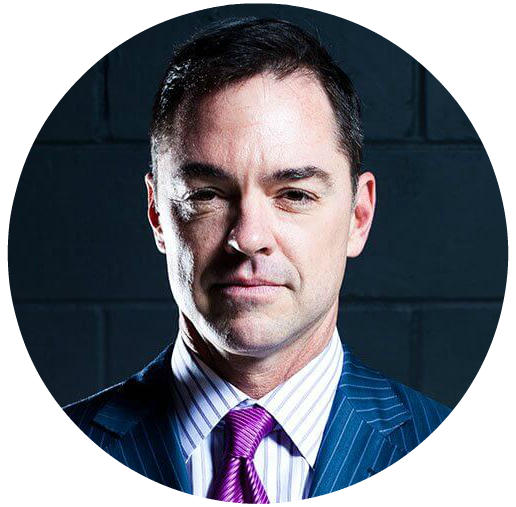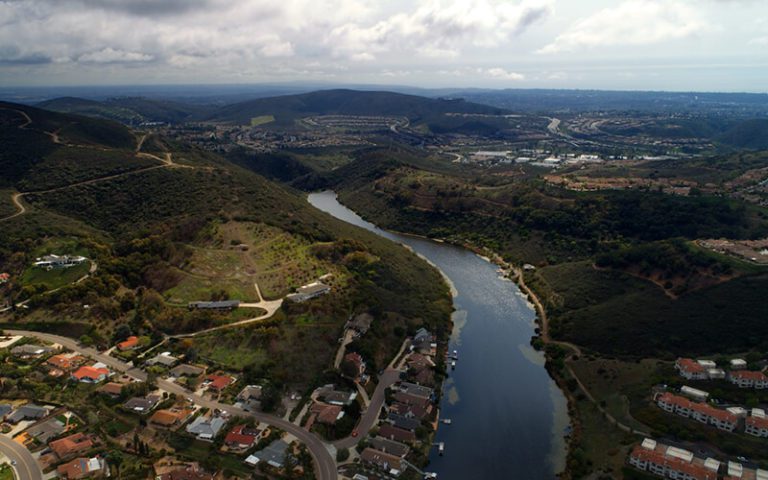Business Interruption Insurance Claims
Think of the last time you saw a commercial for the latest antidepressant or allergy medication. Each commercial has a long list of side effects at the end. If you are a business owner, you know that business interruption insurance works the same way. You purchase insurance to protect your business assets, but your carrier includes a list of exclusions that are a mile long.
In the current climate of a global pandemic and civil unrest across the United States, the importance of business interruption insurance has emerged as a critical topic for entrepreneurs and business owners alike. Business interruption insurance has always been important and the need to recover benefits will remain, even when the rapid spread of COVID-19 ends and civil unrest turns to reconstruction and policy changes.
In this blog, we cover basic business interruption insurance provided under commercial first-party property coverage, common exclusions, and an overview of California’s insurance laws. We will provide some examples of situations where common exclusions don’t actually prevent you from collecting benefits under your policy—and how a Coronavirus business interruption insurance lawyer can help you obtain the benefits you paid for and deserve.
Finally, and most importantly, do not lose hope if you think your policy does not cover your business interruption. It is always in your best interest to discuss the viability of your claim with an experienced attorney.
Commercial Property Insurance in California
 California requires business owners to carry different types of insurance. Commercial property insurance typically provides broad coverage for business losses, specifically buildings, and personal and business property within a structure. Building coverage includes structures and additions listed on the Declarations page of your policy, as well as any machinery, equipment, and fixtures that are permanently attached to the building. Business personal property coverage includes inventory, personal property owned by you, and unattached fixtures, machinery, and equipment.
California requires business owners to carry different types of insurance. Commercial property insurance typically provides broad coverage for business losses, specifically buildings, and personal and business property within a structure. Building coverage includes structures and additions listed on the Declarations page of your policy, as well as any machinery, equipment, and fixtures that are permanently attached to the building. Business personal property coverage includes inventory, personal property owned by you, and unattached fixtures, machinery, and equipment.
California commercial property insurance covers losses under two categories:
- Specified perils are causes of loss explicitly stated in your insurance policy and include things like fires, explosions, windstorms, vandalism, etc.
- All risk commercial property insurance covers all other losses except those it specifically excludes.
Whether your policy covers property damage depends on the listed exclusions in your policy and whether you choose specified perils or all risk coverage.
10 Common Exclusions in Commercial Property Insurance
Regardless of whether you have a specified perils or all risk commercial property insurance policy, the policy may exclude certain events – meaning your business interruption insurance will not be triggered. In some cases, you can purchase an additional special policy to cover these exclusions. You may also purchase a more comprehensive policy that might cover some common exclusions.
Below are 10 common exclusions:
- Earthquakes. If an earthquake causes property damage to your business, your standard commercial property insurance policy generally does not cover the damage. In most cases, you must have a separate policy or addendum that provides earthquake coverage.
- Acts of war. Commercial property insurance typically does not cover any act of war that causes damage to a business. It might cover aircraft and missile damage, but not if they occur as a result of war. Additionally, any commercial vehicles that suffer damage fall under a commercial auto policy as opposed to business interruption insurance.
- Strikes, riots, and civil unrest. Starting in May of 2020, protesters filled the streets of Minneapolis, Minnesota after the death of an African-American man at the hands of police. The protests spread to more than 600 cities throughout the United States, sometimes accompanied by acts of violence and destruction. This included arson, vandalism, and the total destruction of many businesses. Many commercial insurance carriers have introduced an exclusion for civil disobedience in response to past cases of unrest in places such as Chile and Hong Kong. Coverage for riots and associated damage is policy-specific, so you need to read the fine print in your policy (and seek the advice of an attorney) if your business suffered damage during the protests. In some cases, businesses can purchase a separate policy to cover unrest.
- Terrorism and political violence. Damage to a business due to domestic terrorism or political violence is typically not covered under commercial property insurance unless a business owner purchases a separate policy. In regards to the looting and rioting that occurred beginning in May 2020, there has been no official statement on whether this will be considered acts of terror or political violence.
- Some fires. Insurance policies, detailed as they may be, rarely adequately define “fire.” Your commercial property coverage typically only covers a fire that occurs someplace it should not be. For example, if you own a pizza shop and your rustic pizza oven causes damage, it may not be covered. On the other hand, fire damage from a stray ember that ignited a fire and burned down half your restaurant has a better chance of triggering coverage.
- Smoke damage. Commercial property damage insurance rarely covers smoke damage, especially in industrial or agricultural settings. Yet, some specific accidental circumstances trigger insurance coverage.
- Broken glass. Commercial property damage insurance often covers vandalism, but rarely covers broken glass. Yet, the same coverage typically applies to secondary damage that occurs as a result of the broken glass.
- Theft. If someone vandalizes your business and you lose inventory and property due to theft, many policies will exclude those losses from coverage. But if a thief causes damage while breaking into your business, that damage is likely covered.
- Weather. Any damage caused by dust, sand, or rain isn’t typically covered under commercial property insurance; however, most policies cover wind and hail damage.
- Biological agents/viruses. Many commercial property insurance carriers do not cover damage caused by biological agents, viruses, or communicable diseases. The rapid spread of COVID-19 in early 2020 forced the California Department of Insurance (CDI) to step in and encourage affected business owners to file insurance claims in light of national and state-mandated stay-at-home orders, which has caused financial devastation to many businesses throughout the state. Insurance companies have denied claims repeatedly, but CDI put carriers on notice in April 2020.
Under California law, insurance companies must do the following with regard to COVD-19:
- Comply with all contractual, statutory, and regulatory obligations with business interruption claims, event cancellation claims, and other related claims.
- Acknowledge receipt of an insurance claim within two weeks.
- Provide policyholders with documents, instructions, and assistance with providing the right information on the claim that allows the carrier to begin an investigation of the claim.
- Partially or fully deny or accept an insurance claim as soon as possible, but no more than 40 days after receiving proof to support the insurance claim.
- Clearly document the amount of the claim that the carrier accepted or denied unless they completely denied the claim.
Business Interruption Coverage
Different states may regulate or legislate business interruption insurance differently. In California, however, business interruption coverage is optional and can be purchased as part of a multi-peril commercial property policy. Business interruption coverage typically is a specified peril policy—that is, the policy lists the covered losses. Unlisted perils or causes of loss typically are not covered under business interruption insurance.
Another key feature of business interruption insurance in California is that your business must have physical property damage that leads to the interruption of your business for coverage to apply. Many business activities and losses fall under the umbrella of business and a business interruption policy might cover them.
They can include:
- Lost business income from abnormal operations or closure.
- Commercial rent when the property was not usable.
- Relocation expenses from moving a business to a temporary location, including additional rent.
- Employee wages while a business cannot operate.
- Business taxes.
- Payments for business loans.
- Losses incurred when customers or clients do not have access to a building, formally referred to as loss of egress.
For you to receive benefits for such losses under your business interruption insurance, your commercial property insurance coverage must kick in. Depending on the cause of damage, your policy may pay for repairs.
Your policy will typically only cover lost income that results from the following situations:
- You suffer a business interruption as a result of damage to your own property.
- You suffer a business interruption as a result of damage to a customer’s or supplier’s property, referred to as contingent business interruption.
- You suffer a business interruption as a result of an order of civil authority, such as hurricane or wildfire evacuation orders or mandatory curfews.
- You suffer a business interruption because a property that attracts customers to your business suffered damage.
Common Exclusions in Business Interruption Policies
Each policy contains different language, so the only way to know exactly what your policy covers is to review your business interruption policy documents, or better yet, review your policy with an experienced attorney.
It’s common for business interruption policies to exclude the following losses:
- Losses from uncovered damages. As mentioned above, your commercial property policy generally excludes some perils, most often earthquake damage and flood damage. Your business interruption insurance does not cover any losses caused by damages that your commercial property policy doesn’t cover. You also cannot collect benefits under this policy if you voluntarily choose to close your business.
- Undocumented business income. Business interruption insurance policies only reimburse losses for documented income. You need to prove to your insurance carrier that your business suffered economic damage as a result of closure. Proof can be in the form of invoices, retail receipts, and tax documents depending on the type of business you own. If you’ve suffered a loss, you must contact your insurance carrier to find out what they accept as proof of income.
- Utility expenses. Most business interruption insurance does not cover utilities such as electricity, water, gas, etc. When a business suffers enough damage to close, their utilities are often not working or have been shut off.
- Losses from partial closure. If your customers or clients can enter your property, even if it’s difficult, your business interruption coverage will not kick in. You must completely lose access to your building under some policies. For example, if a neighboring business had a fire and debris covered your parking lot, making it difficult for customers or clients to park, your coverage may not apply because your patrons could park elsewhere and still enter your place of business.
- Losses from closures caused by downed power lines. Insurance carriers typically do not cover damage from downed power lines because power outages are common and most often a result of an accident or storm. In the vast majority of situations, local electric companies quickly restore power. It’s standard for most insurance carriers to require business closure to last at least 72 hours before business interruption coverage will apply.
Is Your Cause for Business Interruption Really Excluded?

After reading about the common exclusions to commercial property insurance and business interruption insurance, you might feel hopeless if you’ve recently experienced a business closure and you found the cause listed above. But all hope is not lost.
Commercial insurance policies are as complex as the United States tax code. Commercial property insurance coverage and business interruption insurance go hand-in-hand to the extent that the former must trigger the latter. Between the various exceptions and exclusions, and constantly changing laws, you might qualify for benefits even if it appears at your first glance that you do not.
Insurance companies stay in business because they focus on their bottom line and avoid paying out claims. Often, this translates into denying every claim that comes their way the first time around. Insurance companies also do not take claims from lawyers as seriously as they do from the independent client. If you have suffered financial loss in a business closure, consult an experienced attorney who can review your policy and devise a strategy to fight for the benefits you deserve.







